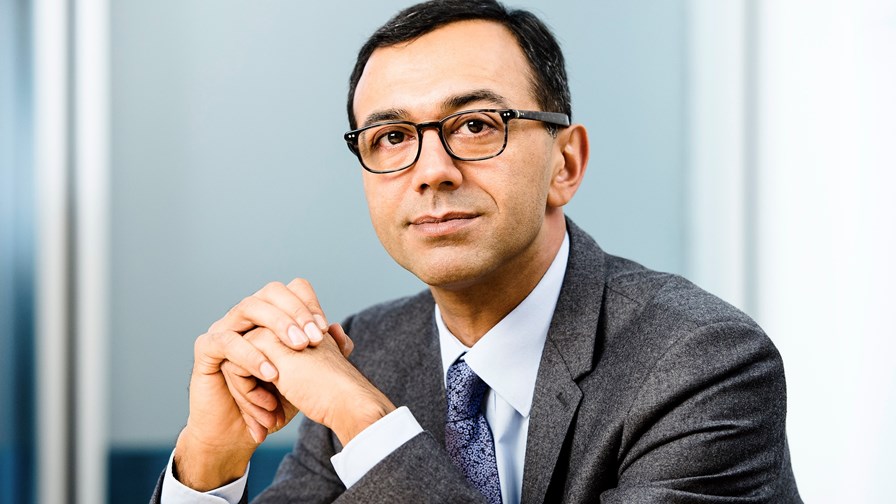
Vivek Badrinath is to be the next director general of the GSMA
- GSMA names Badrinath as new director general
- ETNO rebrands and proposes new head honcho
- STT GDC to pump $3.2bn into India datacentres
In today’s industry news roundup: The GSMA has named industry veteran Vivek Badrinath as its next director general; another industry body, ETNO, has changed its name to Connect Europe and proposed a new leader; ST Telemedia Global Data Centres (STT GDC) is to invest heavily in India’s datacentre sector; and more!
Influential industry body the GSMA has named Vivek Badrinath, the former CEO of Vantage Towers, as its next director general. Badrinath will slip into the GSMA hot seat on 1 April 2025, when current GSMA big cheese Mats Granryd steps down after more than eight years at the helm, having announced his impending departure in June. “I’m proud and honoured to be joining the GSMA at such an exciting time in the industry’s development,” stated Badrinath in the official announcement about his appointment. “I look forward to working with the GSMA board, its members and the leadership team to extend and amplify the positive impact of the mobile ecosystem for people, industry and society globally,” he added. Badrinath has plenty of experience in the mobile industry, having been the CEO at Vantage Towers from 2020, when it was spun out of Vodafone Group, to late 2023. Prior to that, he was Vodafone’s regional CEO of Africa, Middle East and Asia Pacific, and held senior roles at Orange, where he was deputy CEO in charge of innovation, marketing and technology.
The GSMA isn’t the only industry lobby group to have identified a new leader today… the European Telecommunications Network Operators’ Association (ETNO), which represents Europe’s major telcos in their battle to get regulatory relief (especially from the European Commission), has changed its name to Connect Europe and “agreed to propose Alessandro Gropelli as the new director general,” following the announcement that current director general Lisa Fuhr will soon leave the organisation to become the CEO of Géant, the collaboration of European National Research and Education Networks. Connect Europe’s members will consider the proposal at its general assembly (to be held in Lisbon and hosted by national operator Altice Portugal) in early November, but it will be a major shock if the gregarious and smart Gropelli, currently deputy director general, doesn't get the thumbs up. Gropelli spoke with TelecomTV last year about supplier diversity and the prospects for Open RAN in Europe – you can see that interview here. As well as unveiling its new name, Connect Europe also revealed its new vision and mission statement, though there doesn’t appear to be too much that is new about it. The industry body’s executive board chairman, Steven Tas, noted: “Today marks a historic moment for the European connectivity sector. Our focus is on creating more innovation, investment and competitiveness for European citizens. We are not only changing our brand but also our role and vision for the future. Building on our 32-year history, we are preparing the association to work with the new European political leadership and build a long-term partnership for the coming decades.”
Asia’s datacentre investment rollercoaster continues to gather pace with the news that Singapore-based ST Telemedia Global Data Centres (STT GDC) has announced an investment of $3.2bn to expand its datacentre capacity in India by a substantial 550MW, “nearly tripling the company’s IT load capacity to meet the demands of India’s thriving digital economy,” over the course of the next five to six years. “This strategic investment reflects STT GDC’s confidence in India and the growth of its digital economy, as well as aligning with the burgeoning demand for digital infrastructure, driven by the surge in data consumption, cloud computing, digital transformation, and growing adoption of AI applications,” noted the company. “This investment also further solidifies our market leadership in India, where we already command about 28% of market share by revenue,” it added. STT GDC India is majority-owned by STT GDC in partnership with minority stakeholder Tata Communications. STT GDC India’s portfolio consists of 28 datacentres across 10 cities throughout India, with a total combined capacity of more than 318MW of IT load and “a well-diversified portfolio of about 1,000 enterprise customers that include many Fortune 500 companies,” according to the company. Read more.
Japanese mobile operator NTT Docomo is set to launch extended reality (XR) glasses dubbed MiRZA, and powered by Qualcomm Snapdragon AR2 Gen 1 chips, in the coming weeks. The MiRZA XR glasses have been designed and developed in-house by NTT Qonoq, the NTT Group unit formed in 2022 that is tasked with developing hardware and software products for the XR sector. For further details, see this NTT Docomo announcement (in Japanese).
Aleph Zero has become the first blockchain organisation to join the Camara Foundation, the joint GSMA and Linux Foundation industry project that is developing standardised APIs for telecom networks. “This strategic move marks a significant step towards integrating advanced blockchain technology with global telecommunications standards, particularly in the realm of decentralised identifiers (DIDs),” noted Aleph Zero, adding that it will “work closely with global telecom and tech leaders within Camara to develop and contribute to blockchain-specific initiatives. A key focus of this collaboration will be the Blockchain Public Address API, which has the potential to revolutionise how users interact with blockchain technologies through their mobile devices.”
– The staff, TelecomTV
Email Newsletters
Sign up to receive TelecomTV's top news and videos, plus exclusive subscriber-only content direct to your inbox.




